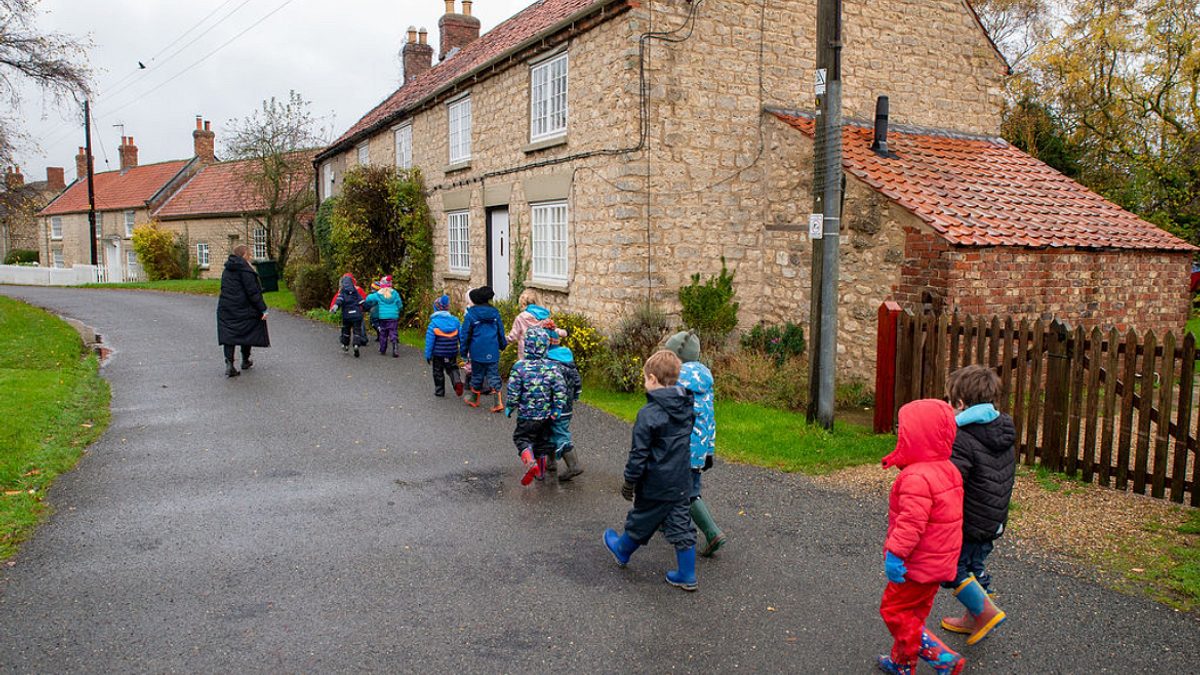
Blog -
Addressing rural disadvantages: Navigating service accessibility challenges – blog 3 of small rural school series
The much anticipated final blog from Mari Palmer in her series on small rural schools.

Share on:

by North Yorkshire Coast Research School
on the
Navigating Challenges in Small Rural Schools: Unveiling Socio-Economic Realities
In our previous discussion, we explored the hurdles of pinpointing poverty in rural areas, particularly due to statistical approaches falling short in identifying pockets of deprivation in less populated regions. While small schools and rural schools share similarities, our focus in this series is on shedding light on the unique challenges faced by small schools in rural settings.
Unveiling Additional Struggles: The Rural Residency Factor
In this second instalment, we zoom in on the problems faced by rural residents, compounding the difficulties already experienced in low-income households. Factors contributing to families being at a high risk of deprivation in rural areas add layers of complexity to poverty identification, creating a diverse mix of socio-economic backgrounds within schools.
1. Disparities in Wages
Wages earned in rural areas are notably lower than those in urban areas, with the average earnings in mainly rural regions ranking as the lowest nationally. However, this statistic specifically accounts for wages earned within rural areas. When considering the overall income of people living in rural areas — accounting for those employed in higher-paying urban jobs — a significant economic gap emerges. This disparity poses challenges in accurately identifying deprivation (Official Statistics of Rural Earnings, 2021).
2. High Cost of Living
The cost of living in rural areas significantly surpasses that of urban counterparts, as highlighted in ‘THE RURAL PREMIUM: exploring the impact of the cost-of-living crisis in rural areas.’ This report by The All-Party Parliamentary Group for Rural Business and the Rural Powerhouse reveals that individuals in rural areas typically spend 10 – 20% more on everyday necessities than those in urban areas (p14). Increased fuel costs for transportation and heating, along with elevated expenses for goods and housing, contribute to this discrepancy.
The combined impact of higher living costs and lower wages creates a scenario where rural schools are likely to enroll students falling into the category described by Becky Allen as the ‘working poor’ in her 2018 blog, ‘The Pupil Premium is Not Working (Part i).’ These are families with working parents residing in the lowest income households, grappling with the challenges of living in areas with a higher cost of living.
Recognizing the ‘Working Poor’
Identifying this disadvantage proves challenging. Pupils from these families may not carry the Free School Meals (FSM) flag, and their parents may find themselves time-poor due to long working hours. Acknowledging and addressing the struggles faced by the ‘working poor’ in rural areas becomes crucial for fostering a more equitable educational environment.
Rebecca Simpson from Lowick School in Northumberland recognises the impact of hidden, rural deprivation in her own school; heavily subsidising school trips and offering free after school clubs and homework provision. In addition to this, families endure additional costs with other essential facilities being up to 50 miles away, compounded by limited transport options.
In our next blog, we will delve deeper into the impact of these economic challenges on education in small rural schools. Stay tuned as we continue to unravel the layers of the intricate tapestry of rural education.
Biography:
https://www.gov.uk/government/statistics/rural-earnings/rural-earnings
https://media.cla.org.uk/documents/APPG_The_Rural_Premium.pdf
https://rebeccaallen.co.uk/2018/09/10/the-pupil-premium-is-not-working/

Blog -
The much anticipated final blog from Mari Palmer in her series on small rural schools.

Blog -
Emily Smeaton, draws on her experience teaching mixed aged classes to investigate metacognitive skills

Blog -
Katie Mallender a Secondary School school maths teacher from Caedmon College Whitby looks at literacy across the curriculum
This website collects a number of cookies from its users for improving your overall experience of the site.Read more